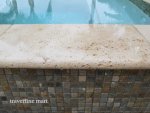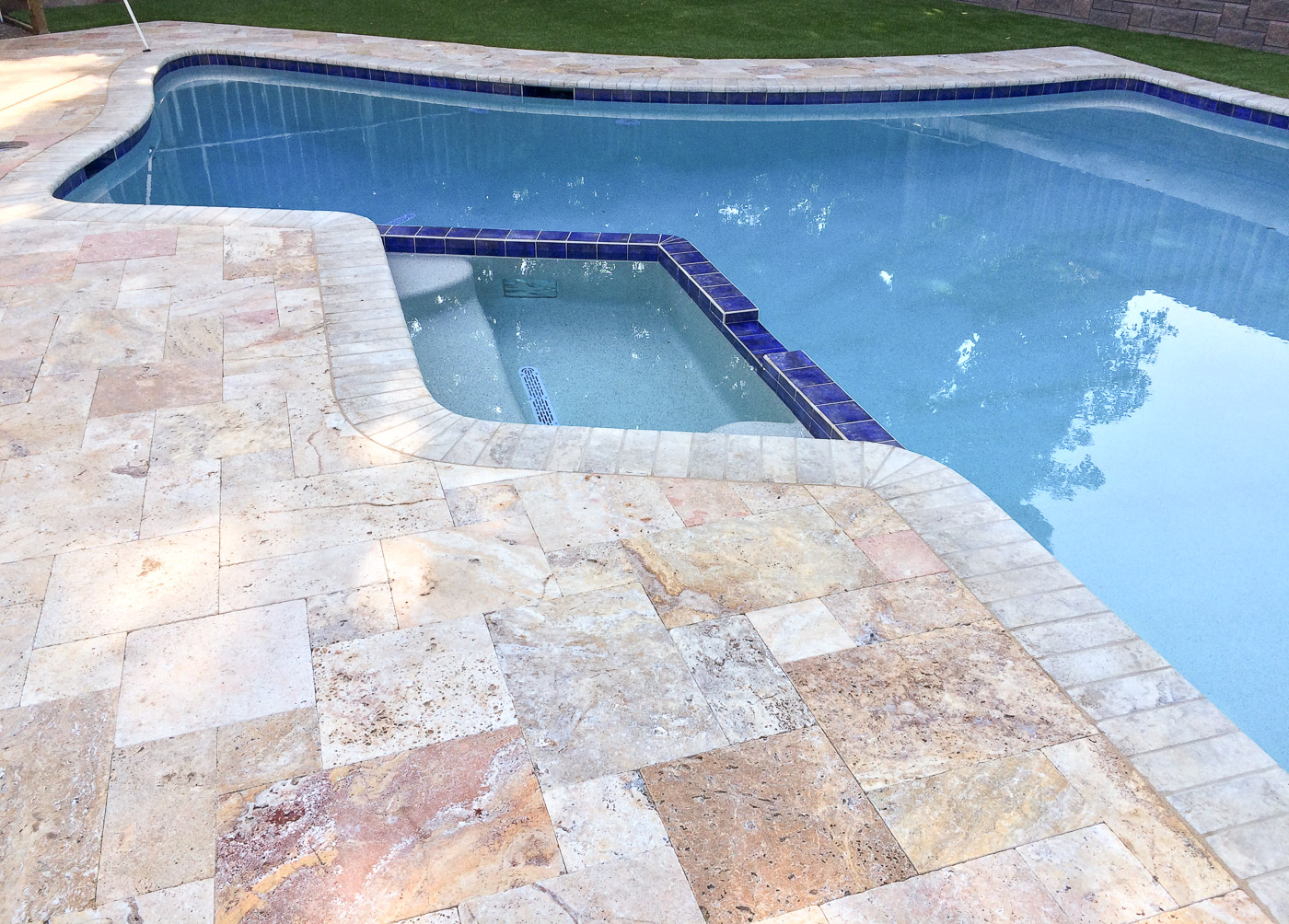- Jul 16, 2012
- 7,211
- Pool Size
- 27000
- Surface
- Plaster
- Chlorine
- Salt Water Generator
- SWG Type
- Hayward Aqua Rite (T-15)
Just some musings...
I find it helpful to think of flagstone for what it really is...sandstone. A type of sedimentary stone. Flag is merely the cut of the stone. So, regardless of the type, it's made up of small grains cemented together by something else with voids remaining. It's those voids, and the erosion of the cementious material that creates the tendency for spalling to occur. I too have "flagstone" and won't have to worry about spalling in my lifetime...because the makeup is different.
When it comes to travertine vs. OK flagstone, the reason travertine is cooler is because it is more pourous which does not hold the heat as well. Porosity would also affect what can get in a cause it to break apart.
Which is all to say...it's a natural product and will do what it wants to and will be somewhat variable. You can be cautious or not and it may help, a lot, some or not much. The perceived risk certainly seems to be higher than actual, at lesat in a normal lifetime.
A few hits form around the http://www...
Blog post from travertinemart.com
http://www.travertinemart.com/travertine-pool-coping/travertine-pavers-and-salt-water-erosion
Almost unbelievably, Dry Treat feels that travertine is affected by saltwater.
http://www.drytreat.com/surfaces/travertine.html
The first reply in the following thread is a very common-sense approach to stone in general.
http://ths.gardenweb.com/discussions/2539312/travertine-for-pool-coping-and-retaining-wall
Here's a 400 year-old travertine wall. Most of us won't last that long. (And maybe they got a bad batch from their supplier!)
https://en.wikipedia.org/wiki/Travertine#/media/File:Kalktuff-Block_Schloss-Tuebingen_2.jpg
I find it helpful to think of flagstone for what it really is...sandstone. A type of sedimentary stone. Flag is merely the cut of the stone. So, regardless of the type, it's made up of small grains cemented together by something else with voids remaining. It's those voids, and the erosion of the cementious material that creates the tendency for spalling to occur. I too have "flagstone" and won't have to worry about spalling in my lifetime...because the makeup is different.
When it comes to travertine vs. OK flagstone, the reason travertine is cooler is because it is more pourous which does not hold the heat as well. Porosity would also affect what can get in a cause it to break apart.
Which is all to say...it's a natural product and will do what it wants to and will be somewhat variable. You can be cautious or not and it may help, a lot, some or not much. The perceived risk certainly seems to be higher than actual, at lesat in a normal lifetime.
A few hits form around the http://www...
Blog post from travertinemart.com
http://www.travertinemart.com/travertine-pool-coping/travertine-pavers-and-salt-water-erosion
Almost unbelievably, Dry Treat feels that travertine is affected by saltwater.
http://www.drytreat.com/surfaces/travertine.html
The first reply in the following thread is a very common-sense approach to stone in general.
http://ths.gardenweb.com/discussions/2539312/travertine-for-pool-coping-and-retaining-wall
Here's a 400 year-old travertine wall. Most of us won't last that long. (And maybe they got a bad batch from their supplier!)
https://en.wikipedia.org/wiki/Travertine#/media/File:Kalktuff-Block_Schloss-Tuebingen_2.jpg



 ). I am starting to wonder if this aversion to salt is not an urban myth. Surely these companies should know more than I.
). I am starting to wonder if this aversion to salt is not an urban myth. Surely these companies should know more than I. Or I'll just be crying in the corner with my travertine dust sandcastle
Or I'll just be crying in the corner with my travertine dust sandcastle 
